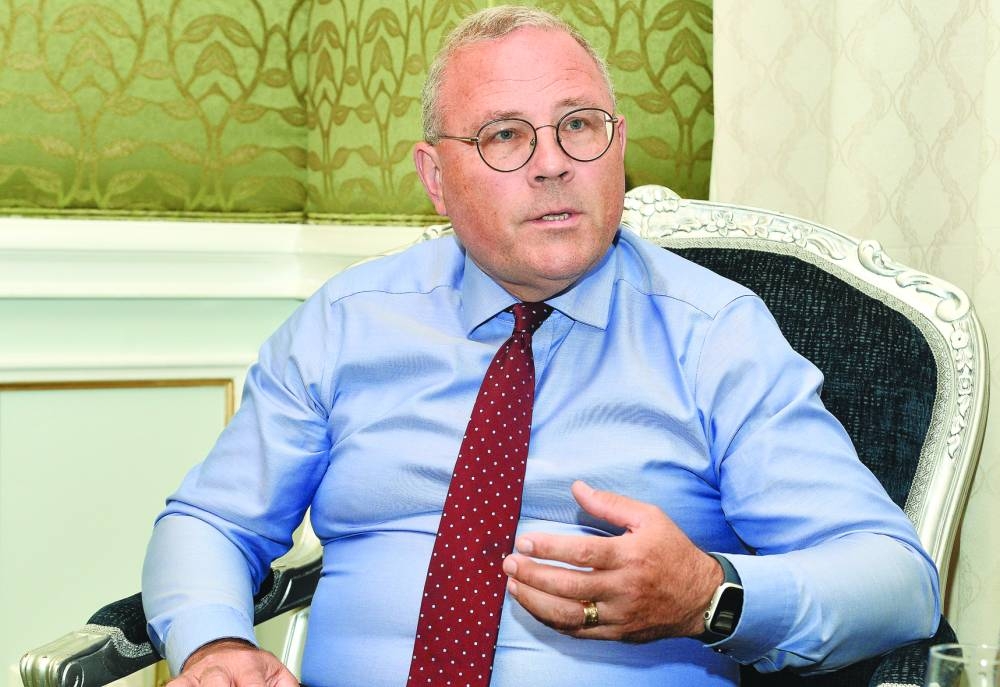Qatar and Sweden share a high potential in forging sustainability partnerships driven by innovation and knowledge exchange, according to the CEO of FAM, a Swedish private holding company founded by the Wallenberg family.
Hakan Buskhe recently led a high-level business delegation to Qatar comprising Swedish CEOs, who explored the country’s investment opportunities and industrial landscape to foster partnerships between Swedish and Qatari companies.
In an exclusive interview with Gulf Times, Buskhe highlighted both countries’ parallel development pursuits, including Qatar’s sustainable development goals outlined in its 2030 National Vision, and Sweden’s expertise in renewable energy, urban planning, and environmental technologies that could support Qatar’s efforts.
Buskhe also emphasised the potential range for knowledge sharing and collaborative innovation between Qatar and Sweden across sectors like sustainable cities, waste management, circular economy, agriculture, and food security.
“There is strong potential for joint sharing of knowledge. For example, Sweden has been carbon-neutral in supplying electricity due to various circumstances for many years. We have utilised that to develop our products for the global market.
“Of course, Qatar has its unique requirements. Yet, from what I've gathered through our interactions with various institutions and companies in Qatar, there is a significant opportunity to evolve and enhance sustainability. This shared goal aligns us closely,” Buskhe explained.
Citing another commonality between both nations, Buskhe lauded Qatar Foundation’s (QF) focus on sustainability through research and development (R&D), saying this reflects the mutual commitment to sustainability, innovation, and learning from each other’s experiences.
“It is important to note that Sweden and Qatar have different development paths. Among Sweden’s natural resources is iron ore; we have forests and many rivers, as well as green steel and sustainable electricity.
But I think the understanding and the willingness to go in that direction is also very strong in Qatar as it is in Sweden. It is a genuine direction for both countries. And I think we can compare notes and learn from each other,” Buskhe explained.
On the back of knowledge sharing and innovative collaboration befitting Qatar and Sweden’s forward-looking visions, Buskhe also emphasised the potential breadth of a sustainability partnership spanning renewable energy, agri-tech, smart cities, and circular economy solutions, among others.
Buskhe pointed out that Sweden boasts a longstanding tradition in waste management, citing waste as “a good resource.” He noted that only “1%” of Sweden’s waste is sent to landfills, while the remaining “99%” is recycled or repurposed. He stressed that waste disposal and management is not solely a government responsibility but a collective effort of society.
“In Sweden today, people spend the weekends sorting or engaging in recycling-related activities. Growing up in the ‘60s, we didn’t have this type of waste management. However, each individual has an impact on society, so everyone, not just the government of the city or municipality, must be responsible for doing their part in the circular economy.
“Not only can Qatar and Sweden exchange or compare notes in the area of industrial technology and machinery, but also in terms of mindset whether it is on recycling or other ways to protect the environment,” Buskhe further explained.

FAM CEO Hakan Buskhe. PICTURE: Shaji Kayamkulam

